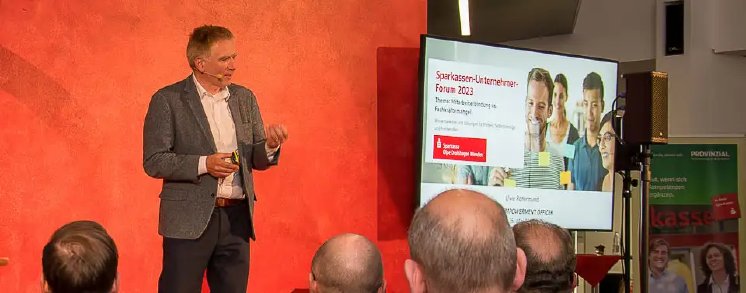Taking responsibility as the key to employee retention
It is the same picture in almost all sectors and regions: companies advertise their most urgent need - new employees - on their vehicles or on large posters in front of the factory gates. The baby boomers are reaching retirement age, there are not enough new recruits in sight and the willingness to change jobs is increasing. Some are attracted by money, others are consciously looking for companies where they can make a difference and take on responsibility. This brings the everyday culture in the company into focus.
People want to identify with their work and in order for them to build a strong inner connection to "their" company, it takes more than a regularly paid salary. Corporate visions and missions, which are discussed within the company and supported by everyone, are considered an important instrument. Active communication internally by managers and management contribute to this acceptance. But the opposite way of communicating within the company must also work. Employees want to be able to express their views and concerns publicly, and this requires the interest of management and the appropriate instruments.
Theory and practice of agile leadership
Uwe Rotermund, a successful entrepreneur for more than 25 years and a GREAT PLACE to WORK® ambassador in business circles for more than 10 years, gave another remarkable tip on how to bind employees to one's own company. In his lecture, he took up the cudgels for the principle of agile leadership. Through agile work structures, employees are valued to the maximum and this appreciation can release undreamt-of energies. Fast and flexible action and reaction to changing market and customer requirements is also a positive aspect of agile working.
Many of the entrepreneurs present could confirm this view from their own experience. Jointly defined and supported plans are among the most effective ways to be successful.
Positive company ratings are a magnet for future applications
The extent to which positive evaluations of the employer on relevant internet platforms motivate young applicants in particular to apply to a company rated in this way was another of the many topics that Uwe Rotermund addressed. The effort to make everyday life pleasant and attractive for one's own people is clearly worthwhile.
Dieter Kohlmeier, Chairman of the Board of Sparkasse Olpe-Drolshagen-Wenden, concluded by thanking his speaker Uwe Rotermund for the lecture: "You know your "trade" super well and understood very well how to sensitise those present. Many thanks for the time we spent together yesterday.“
Information about Culture Change Management and other consulting topics of noventum consulting GmbH on nc360°, the noventum information platform for success stories and background reports.


